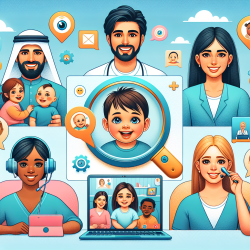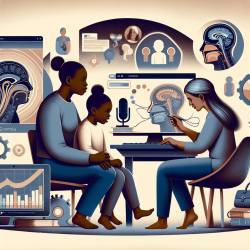Mobile health (mHealth) tools are increasingly becoming integral to clinical practice, offering promising improvements in workflows and patient care. A recent study, titled "Factors Impacting Clinicians Adoption of a Clinical Photo Documentation App and its Implications for Clinical Workflows and Quality of Care: Qualitative Case Study," provides valuable insights into the adoption of mHealth tools. This blog will summarize key findings from the study and discuss how clinicians can leverage these insights to enhance their practice.
Understanding the Benefits of mHealth Tools
The study focused on a clinical photo documentation app called imitoCam, used in Switzerland and Germany. The app's primary benefits, as identified by the study participants, include:
- Time-saving and Efficacy: Clinicians found the app significantly reduced the time needed for photo documentation, allowing them to focus more on patient care.
- Improved Patient Safety and Quality of Care: The app enabled better tracking of patient progress, leading to timely interventions and improved treatment outcomes.
- Data Security and Validation: Compliance with data protection regulations like GDPR ensured patient data privacy and security.
- Accessibility: The app's mobility allowed clinicians to access and document patient data more conveniently.
Factors Influencing Adoption
While the benefits are clear, several factors influence the adoption of mHealth tools:
- Technical Factors: These include the app's usefulness, ease of use, interoperability with existing systems, and cost. Clinicians emphasized the importance of these factors in their decision to adopt the app.
- Social and Cultural Factors: Personal experience with technology, attitudes towards change, and awareness of the app's benefits also play a crucial role.
- Organizational Factors: The fit of the app within existing workflows, the complexity of decision-making processes, and the availability of resources and training are significant considerations.
Overcoming Barriers to Adoption
The study identified several barriers to the adoption of mHealth tools, including technical issues, data management challenges, and organizational constraints. To overcome these barriers, the study recommends:
- Engaging Users in Development: Involving clinicians in the app's development and implementation process can ensure it meets their needs and integrates smoothly into their workflows.
- Providing Continuous Training: Regular training sessions can help clinicians stay updated on the app's features and functionalities.
- Streamlining Decision-Making: Simplifying the decision-making process within healthcare organizations can facilitate quicker adoption of new tools.
Conclusion
The adoption of mHealth tools like imitoCam can significantly enhance clinical workflows and the quality of patient care. By understanding and addressing the factors influencing adoption, clinicians and healthcare organizations can better leverage these tools to improve outcomes.
To read the original research paper, please follow this link: Factors Impacting Clinicians Adoption of a Clinical Photo Documentation App and its Implications for Clinical Workflows and Quality of Care: Qualitative Case Study










